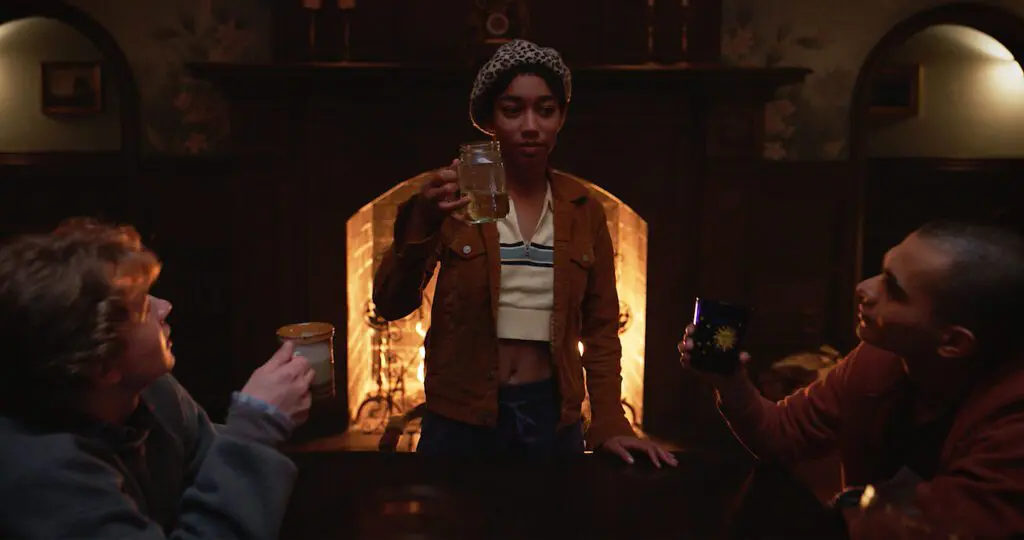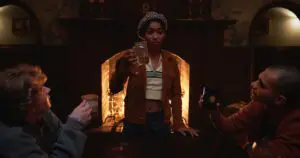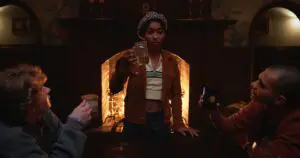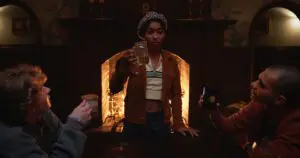What makes The Midnight Club entirely unique is its clever plot structure. Every episode centers on one specific ghost story told by one specific member of the gang. These stories reflect the characters’ own lives, dealing with love and death, their hopes and fears, in an authentic manner.
Subtly addressing their own thoughts and feelings via these tales adds an extra emotional layer to the characters, making them more relatable in the process. It’s a gripping formula that separates this teen horror from the rest.
The ghost stories are a lot of fun, and yet they can also be genuinely emotive. I have ranked all of the stories told in The Midnight Club from my least liked all the way to my very favorite. Please comment on your favorites below.
10. Natsuki’s ghost story
There isn’t a bad story in The Midnight Club, but Natsuki’s suffers from feeling rather rushed and quite cut short compared with the others. Ilonka overhears this story on her first night at Brightcliffe, and just like this new girl, we, the audience, are only shown a snippet of the story too. In this creepy offering, a boy walks down a suburban street and is haunted by a ghostly schoolgirl. The tale relies on numerous jump scares to frighten its audience, which are unoriginal but still highly effective.
9. Spence’s “The Eternal Enemy”
In Spencer’s homage to time-traveling sci-fi movies of the eighties and nineties, a student called Rel discovers that his VCR records news footage from the future. Rel and his friend Christopher use this newfound power to win a few bets and then save a girl’s life. But tragedy strikes when Rel sees that Christopher is going to die next. He tries to stop this from happening and is visited by a much older Christopher from the future. Rel is told that he is actually a defective cyborg who was created by Christopher in the first place. This story mirrors Spence’s fears about being defective himself, and he uses the tale as a way of forgiving the real-life Christopher, who caused Spence’s sickness.
8. Ilonka’s story about Julia Jayne
Ilonka mixes in facts she has pulled from the internet and adds in a little flair of her own to the story of Julia Jayne. This Brightcliffe patient was diagnosed with thyroid cancer and was miraculously cured while at the hospice. She disappeared for days, and on her return, the cancer magically faded from her body. In the story, she was left with the power to predict the day each individual would die. It’s an intriguing setup that is deeply interconnected with the overall plotting. Ilonka wants to live and idolizes Julia Jayne’s story. It is her only salvation and one she clings to dearly throughout the first season.
7. Amesh’s “See You Later”
This sci-fi-themed saga from Amesh tells the story of a video game nerd called Luke, who is given the opportunity to play a new game made by the infamous creator Vincent. Vincent is played by Midnight Mass star Rahul Kohli in a surprise guest appearance. The game happens to be a simulator that has real-world consequences, and Luke eventually saves the planet. This tale descends into silly sci-fi tropes, although he calls the saviors angels, not aliens, in the end. It’s a story about his fears of the future and about dying alone. Luke may not win the girl, but Amesh does when Natsuki plucks up the courage to kiss him after this story is finished.
6. Anya’s “The Two Danas”
Anya’s story is based on reality, with all the backstories drawing from her own life. Anya was a ballet student and had a drug habit. In the story, she makes a deal with the devil and is allowed to have two versions of herself. One that can concentrate on the disciplined art of ballet, and the other one that is allowed to party. The two versions feel and see the same things and eventually war with one another for overall dominance. Anya ponders which life was better and can’t seem to choose between the two in the end.
5. Ilonka’s “Witch”
Ilonka’s story about witches that can predict the future starts off quite slowly but takes on a more emotionally relevant ending. The tale focuses on Imani, a young witch who learns the power of premonition. Interestingly, this is something that Ilonka seems to have in the real world as well. She can see the future but cannot control it. This reflects the story, too, as she tries to save Ben’s life but finds that he dies anyway. Later in the series, the story switches to one that is really just about Anya. Ilonka wanted to save her friend, and yet she couldn’t change fate. She talks of honoring the memory of the dead and then dreams of an afterlife where everyone is reunited. It’s a painfully sad end and also one that is deeply moving when Ilonka herself struggles to finish the story.
4. Natsuki’s “Road to Nowhere”
This was one of those twist endings that, unfortunately, I figured out early on, but that predictability doesn’t take away from the poignant ending. Natsuki’s tale is actually her way of confessing to Amesh about her suicide attempt from years earlier. The story is about a girl who goes driving at night and picks up two eerie hitchhikers along the way. Things go from the corrupt to the downright supernatural as her journey feels like one endless loop. In reality, the lead character is dying in the garage, choking on the car fumes surrounding her. The hitchhikers represent her good and bad thoughts, with the good just about winning out in the end. Natsuki admits that, in reality, her mother found her and saved her from dying. Only a little while later, she was diagnosed with a deadly disease. The irony troubled Natsuki for years.
3. Sandra’s “Gimme a Kiss”
Sandra goes and surprises everyone with a detailed detective story that homages film noir. This is a fun little detour from the ghost stories and sci-fi rip-offs the others have told. The film is shot in black and white, capturing the clichés of the genre with this playful riff. Sandra’s story works as an apology of sorts. She was horrid to Spence, pushing her religion on him, and as a peace offering, she used the noir to say sorry for her own comments and those of her combined religious community. It’s a warming end to an entertaining whodunit mystery.
2. Kevin’s “The Wicked Heart”
Kevin’s serial killer story is an ode to classic slasher movies but with an added supernatural twist. Dusty is the latest in a long line of serial killers in his family. He is forced into these killings by voices in his head and his demonic mother. When Dusty kills a fresh victim, he is haunted by them. This is visually signified by all the victims silently screaming at Dusty. It’s a creepy setup that the showrunners use throughout Kevin’s tale that helps create an uneasy atmosphere. Kevin’s story concludes with Dusty locking himself away in a mental asylum, so he doesn’t hurt any more people. Ilonka doesn’t like the ending, stating that Dusty shouldn’t have to die alone. Kevin thinks that he has to shoulder his burdens alone, but he eventually realizes that he needs to enjoy what little time he has left and be selfish for once.
1. Anya’s happy ending
For me, one of the most gut-wrenching moments in The Midnight Club comes when the gang speaks to Anya, who is in a coma, battling the fever that will eventually kill her. Natsuki tells a story of hope, choosing to ignore reality for a moment, focusing on all the fantasies that Anya may or may not have had and the group’s dreams as a collective. This happy ending involves Anya and the gang all being cured of their illnesses. They all live together in a college fraternity, start their own separate families, and then grow old together. It’s a heartbreaking sequence that is only heightened by the scene that follows it. Anya’s numbing death juxtaposed with this vibrant, fantasy life for the utmost dramatic effect. This tale is probably the least subtle of the lot, broadcasting the gang’s hopes and fears for all to see, but it eloquently addresses the fragility of life as well. They know that they are going to die and so choose to focus on a life that could have been instead – emotional stuff indeed.
Read More:




